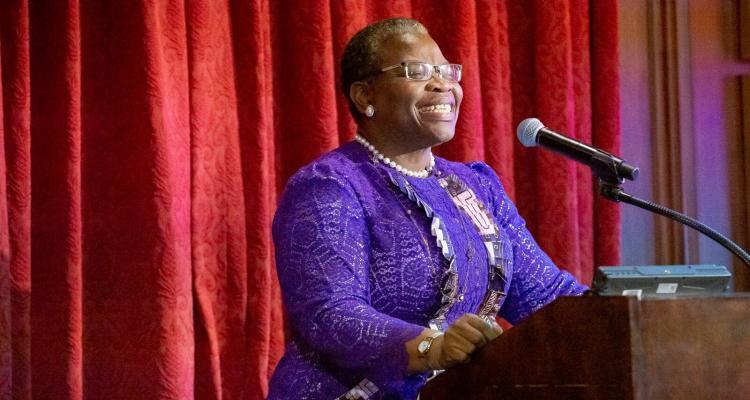
Government through the Ministry of Education has vowed to improve the education sector in the country by prioritising the welfare of teachers at all costs as they work tirelessly despite facing challenges.
The statement was made by the Minister of Education Madalitso Wirima Kambauwa when Human Africa hosted a Foundational Learning Roundtable at United Nations General Assembly ( UNGA) whereAfrican governments showcase their commitment to and progress towards addressing the learning crisis that has left 9 out of 10 African children unable to read a sentence with understanding by the age of ten.
Founder and CEO of Human Capital Africa, Dr Obiageli Ezekwesili, who set the tone for the day by emphasising the urgency of the learning crisis, highlighted the need and the urgency to address the fact that 9 out of 10 children in Africa are unable to read with understanding by the age of ten.
Importantly, she celebrated the leadership demonstrated across the continent to take ownership of the challenge.
She said: “Education is a key catalyst to resolve many of the challenges faced by our continent. Every child deserves quality education and this can only be achieved if we all take responsibility and invest in foundational literacy and numeracy wherever we are. If we do not, then the ripple effect will extend beyond Africa, to the economies of big nations.
” Setting the right foundations for learning during the early years, before the child ends grades 2 and 3, is fundamental. This is a challenge we can solve, and we can change the situation faster than we imagine if we are all coordinated. I am inspired by the leadership being demonstrated by African governments.”
She went on to say that their work will inform not just the approach that is taken across the wider African continent but has important lessons for how to tackle this challenge globally.
Speaking at the meeting, Kambauwa said that Malawi is taking a holistic approach to policy making that prioritises foundational learning and the country is making significant advancements.
She added that Malawi recognise that the teacher is the most important part of the learning process, and they are improving the training and deployment of teachers – ensuring that they are equipped to teach, and are deployed to the areas that need them most – especially rural areas.
“We are enhancing school feeding programmes so that children have food in their stomachs when they learn, targeting an expansion from 2200 schools today, to the 6900 primary schools in the country.
” Finally, we recognise the importance of an integrated assessment framework to help guide us, and we have begun the process to harmonise our assessment tools, including the use of the HCA scorecard,” she explained
The minister told the gathering that Malawi launched its first pilot in Lilongwe City in July 2023 to gather information on HCA’s Micro-Learning Indicator to test for literacy and numeracy skills.
According to Kambauwa, The Ministry and HCA teams worked closely together to tailor the data collection tools to the specific context of Malawi and also conducted brief surveys to grasp the experiences of teachers and students within the education system.
“We are determined to continue this journey, in partnership with HCA, as we champion the need to collect data and use it to enhance transparency and accountability at all levels. Foundational learning is the backbone of future learning, and together we can chart a better future for our children.”she further stressed
The leadership being taken by African governments was represented by the Minister of Education of Malawi, Madalitso Wirima Kambauwa and the State Minister of Basic Education for Uganda, Dr. Joyce Moriku.
Dr Joyce Moriku said Uganda moved from commitment to action to an investment in the human capital scorecard to ensure that they collect the data they need to make policy decisions.
Moriku said that more investments should be made and there is a need to learn from homegrown solutions to fix the learning crisis because their aim is to establish a system capable of understanding classroom needs, implementing structured pedagogical interventions, observing progress and adjusting interventions based on the system’s reaction, and maintaining regular accountability to the targets we set to improve FLN outcomes.
The work of Human Capital Africa was recognised by partners from across the development, private sector and philanthropic ecosystems, including the Bill and Melinda Gates Foundation, the World Bank, the Global Partnership for Education, USAID, FCDO, Equity Bank, the Aliko Dangote Foundation and the Tony Elumelu Foundation. Each organisation is committed to working together to resolve the learning crisis.
Dr Obiageli Ezekwesili














